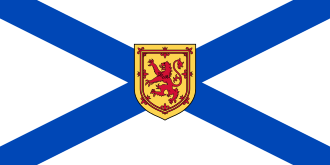Discover Your Roots
SIGN UPDiscover Your Roots
SIGN UPNova is a gender-neutral name of Latin origin, meaning "new." It has been in regular use for both males and females since the 1800s in the United States. The name has gained popularity, ranking among the top 1,000 names for newborn girls since 2011 and becoming one of the top 50 most used names for American girls since 2017. Variants of the name, such as Novah, Novalee, Novalynn, and Novarae, are also popular for American girls. Additionally, it has become increasingly popular for girls in European countries, ranking among the top 100 names in The Netherlands and Sweden, and the top 200 names in Norway. The name Nova has cultural significance, being among the five most popular names for Black newborn girls in Virginia and having a Finnish variant, Noova. Notable individuals with the name Nova include singers, athletes, actors, and authors, demonstrating its diverse appeal.

Nova Scotia, located on Canada's east coast, is the most populous province in Atlantic Canada, with over 1 million residents. It comprises the Nova Scotia peninsula, Cape Breton Island, and 3,800 coastal islands. The capital, Halifax, is home to over 45% of the province's population. Originally inhabited by the Mi'kmaq people, the area saw European colonization in 1605 when Acadia, France's first New France colony, was established. Nova Scotia's name, meaning "New Scotland," reflects its Scottish heritage, with the province being granted to Sir William Alexander as a Scottish colony in 1621. The region witnessed conflicts between the French, British, and Scots, and during the American Revolutionary War, thousands of Loyalists settled in Nova Scotia. In 1848, it became the first British colony to achieve responsible government, and in 1867, Nova Scotia joined Confederation, forming the Dominion of Canada. The province's history is rich and diverse, shaped by its Indigenous roots and European influences.




All images displayed on this page are sourced from Wikipedia or Wikimedia Commons.We use these images under their respective Creative Commons or public domain licenses. Wherever applicable, author attributions and license information are provided. If you believe an image is used incorrectly or outside its license terms, please contact us so that we can review and correct the issue.